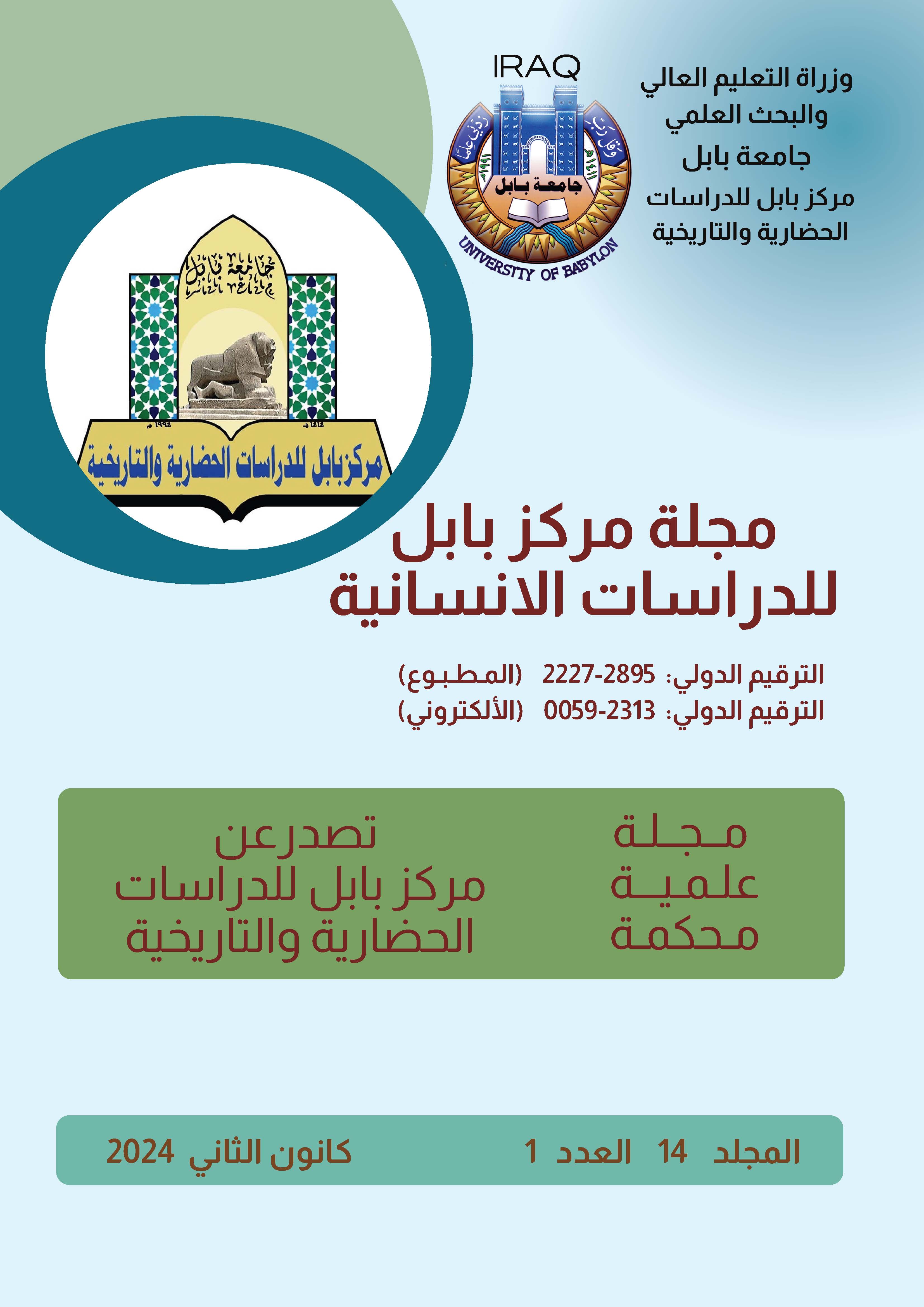الاساس القانوني للمؤسسات التنفيذية والتشريعية والقضائية والادارية في النظام القانوني العماني
الكلمات المفتاحية:
سلطنةعمان,المؤسسة الادارية ,السلطة القضائية,السلطة التشريعية, القانون الاساسالملخص
ان نظام الحكم في سلطنة عمان هو نظام ملكي وراثي ,حيث ان السلطان هو الذي يستلم الحكم ويكون بالوراثه ,وهو ايضا بنفس الوقت رئيس الدولة ,وكذلك رئيس الحكومة ,كما يقود السلطات الحكومية الثلاث ,التشريعية والتنفيذية والقضائية ,وهو يعتبر النظام الاساس للسلطنة ، ويعتبر النظام الأساسي للسلطنة هو القانون الأسمى لها، وهو بذلك يعادل هذا النظام الدستور، وهو الجانب الأكثر أهمية في النظام القانوني العماني، ان الشعوب التي تريد ان تلحق بركب التطور والاستقرار لابد ان تغير من مسار حياتها عن طريق القوانين والتشريعات التي تجعل من هذا المسار قانوني وبنفس الوقت يساعدها لاجل الحصول عل حقوقها الشرعية والقانونية وبالتالي استقرار البلاد سياسيا واجتماعيا واقتصاديا , ومن خلال التجارب التي مرت على الشعوب فانها دائما ما تسعى لذلك , وفي بداية كل طريق هنالك صعوبات تواجه البلاد لاجل الوصول الى الاستقرار السياسي والاجتماعي والاقتصادي , لذا كانت الدساتير مرحلة مهمة في حياة الشعوب من اجل ايضاح البنى الاساسية والفلسفية للانظمة السياسية ومن هنا كان بحثنا قد سلط الضوء على ما مرت به سلطنة عمان من تجرية سياسية بعد صراعات القبائل فيها , فكان اول بوادر الانطلاق نحو نظام سياسي هو اصدار القانون الاساسي لسنة 1996 وبداية الدولة الحديثة وايضا تنظيم عمل المؤسسات فيها على الرغم من ان النظام القائم فيها من ناحية الحكم ووفقا للقانون الاساسي هو نظام وراثي شرعي مزج بين الاسلام والوراثة , الا انه لايخلو ان يكون في بدايته مفيدا للشعب العماني من اجل التغيرات المستمرة على القانون الاساسي وصولا لما يبتغيه الشعب العماني من الاستقرار , ,وان النظام القانوني يجب ان يكون له اساسا من اجل الوصول الى مبتغاه وان هذا الاساس هو الدستور الذي يجب من خلاله ان تقوم مؤسسات الدولة وبالتالي خضوع الحاكم والمحكوم الى هذا الدستور وتطبيقه بصورة فعلية وليست شكلية لان هنالك الكثير من الدساتير التي تكون معطلة بسبب الحكام وليس بسبب الدستور نفسه , المهم في الامر بان القوانين الدستورية هي من تظهر الوجه الحقيقي للمؤسسات وعملها اذا كانت هنالك ما يؤيدها او يسعها لتطويرها على الرغم من ان المنطقة تحتوي على دساتير قد تكون غالبيتها شكلية لذا اوضحنا اهمية هذه الدساتير في سلطنة عمان واهمية ذلك لهما والجوانب المهمة من السلطة التنفيذية والقضائية والتشريعية .
تم اعتماد النظام الأساسي عام 1996 ولم يخضع إلا لتعديل واحد في 2011,وبعد وصول السلطان طارق بن هيثم اجري ايضا تعديل على القانون الاساسي فيما يخص الاسرة الحاكمة, وينص النظام الأساسي على العديد من حقوق سكان عُمان بما في ذلك منع أي تمييز على أساس الجنس، أو اللون .ونحن في بحثنا هذا حاولنا تسليط الضوء على اهم تلك المؤسسات والاهمية القانونبة للاساس القانوني الذي تستند عليه هذه المؤسسات واهميتها وكيفية عملها ,ومشكلة البحث هي هو عن كيفية ادارة تلك المؤسسات ؟وهل ان الاساس القانوني لها يصدر بالاجماع الملكي او انه عن طريق مؤسسة تشريعية .







